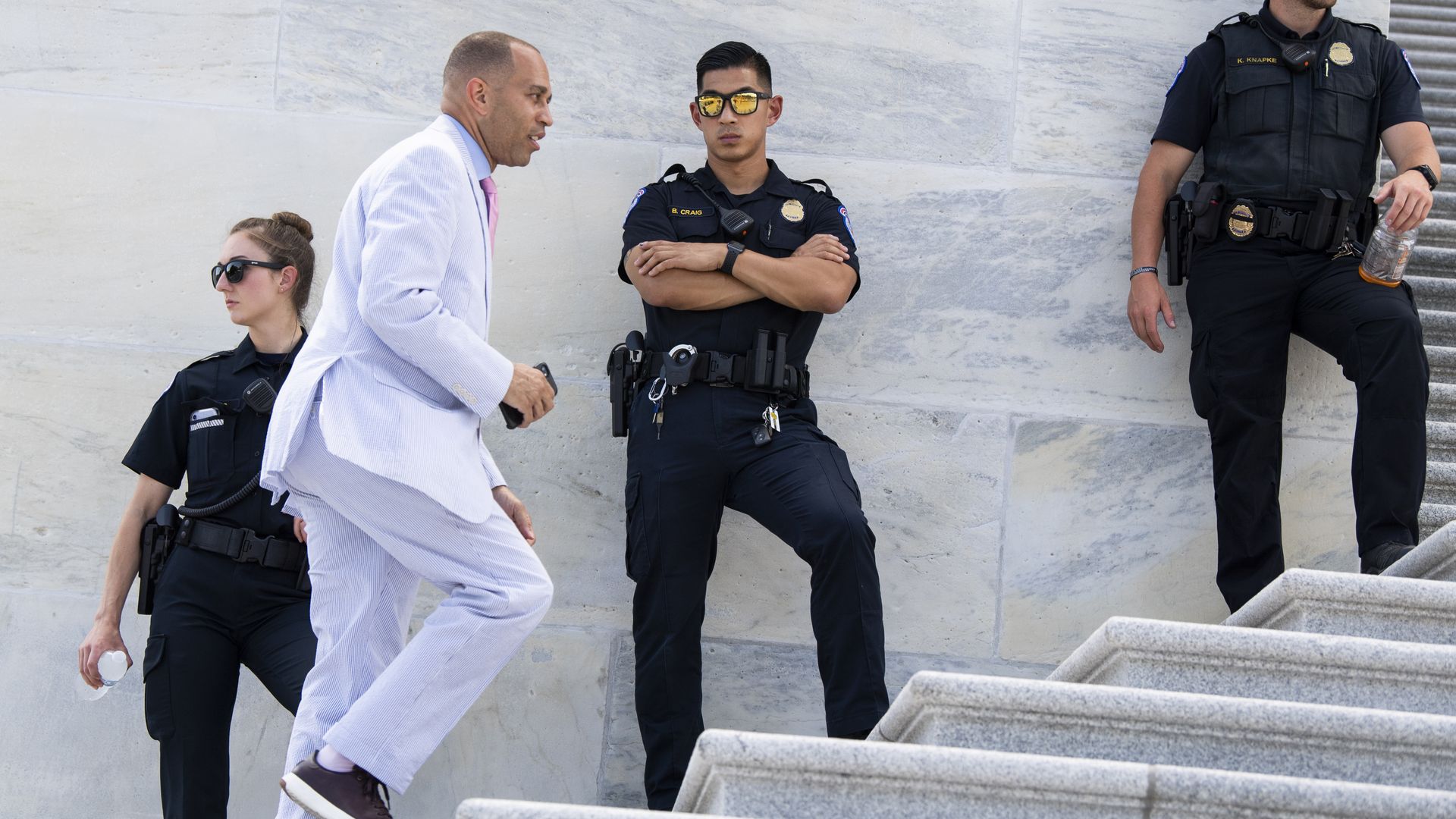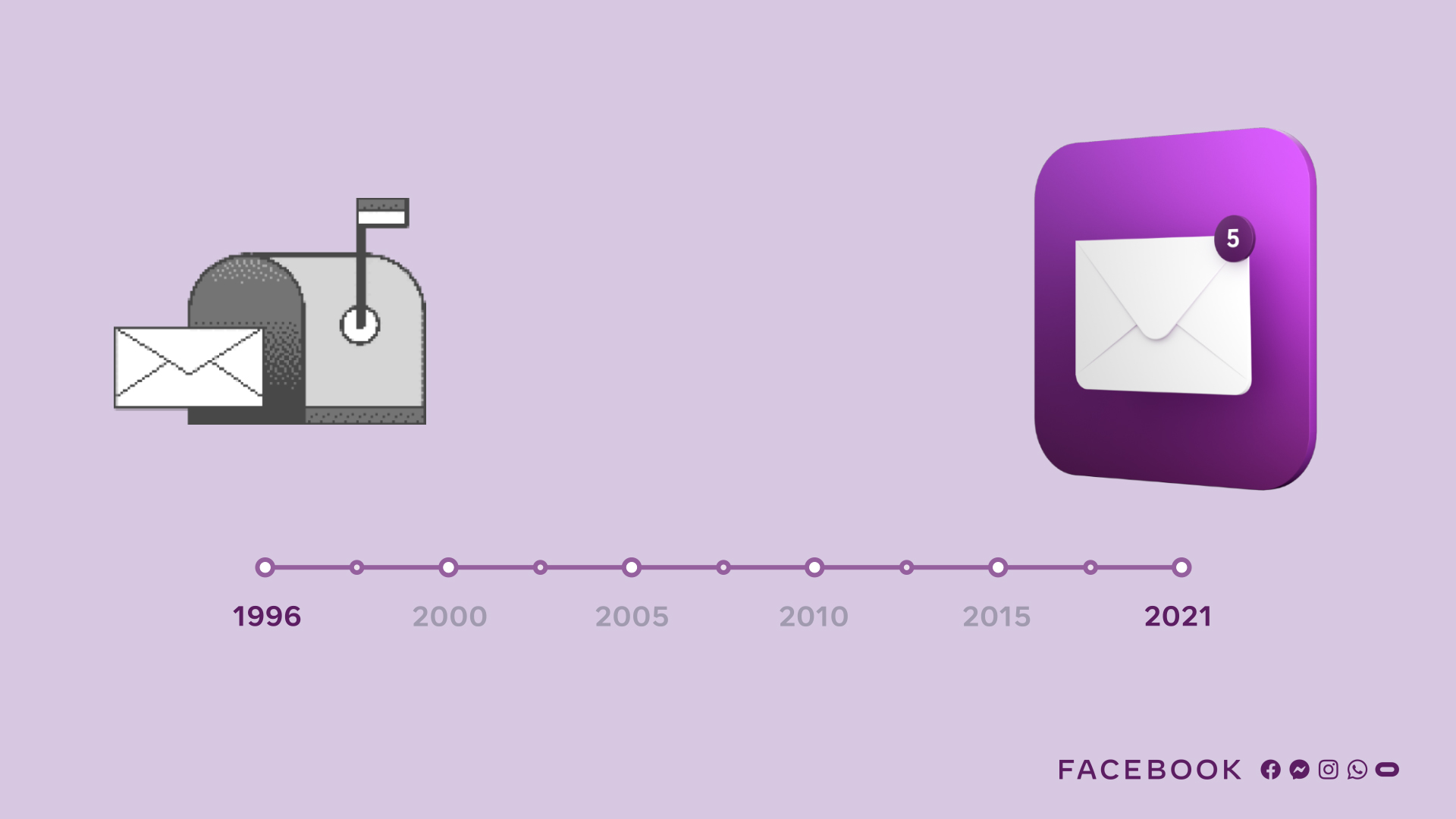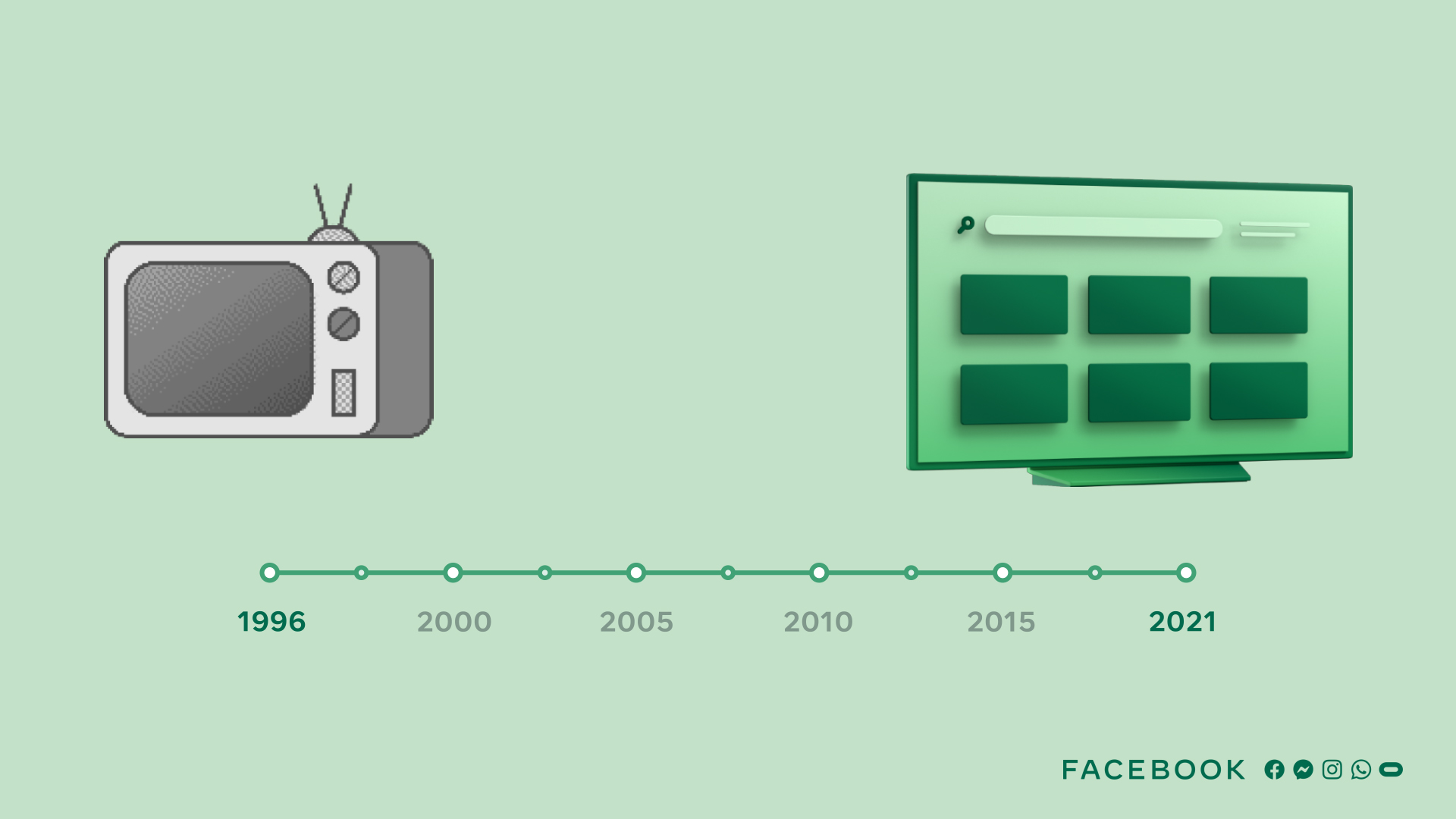| | | | | | | Presented By Facebook | | | | Axios Sneak Peek | | By Alayna Treene and Hans Nichols ·Jul 28, 2021 | | Welcome back to Sneak. The bipartisan group produced the goods. 🚨 Breaking: "DOD Reimposes Mask Mandate Inside Pentagon, Other Bases Near 'Substantial' COVID Transmission," Defense One reports. Smart Brevity™ count: 1,343 words ... 5 minutes. Edited by Glen Johnson. | | | | | | 1 big thing: Conservative media's gold diggers |  | | | Illustration: Annelise Capossela/Axios | | | | With inflation rising and Congress pumping out massive spending bills, conservative media have focused renewed attention on financial issues — and lent significant airtime to some of the very companies underwriting their shows. Why it matters: Politics is bleeding into financial advice, and all incentives are to play up impending economic disaster, writes Axios' Lachlan Markay. - "Buy gold" ads have been a cable news and talk radio staple for years. But the present focus on precious metals as a hedge against rising prices is aligning pundits' ideological and financial interests.
- The result is a blurred line between political commentary and paid advertising.
Prominent conservative voices such as Ben Shapiro and Steve Bannon have hosted interviews this year with Phillip Patrick, a "precious metals specialist" with the company Birch Gold. - Birch Gold sponsors Bannon's and Shapiro's shows, as well as those of other prominent conservative talkers such as Larry Elder and Hugh Hewitt.
- Patrick and Shapiro discussed the rising rate of inflation and Biden administration spending plans in a March interview, and plugged gold and silver as ideal offsets to a devalued dollar.
- Bannon interviewed Patrick on Monday for his "War Room" podcast, shortly after a recorded Birch Gold ad in which Bannon told listeners they "must have precious metals in [your portfolio], gold and silver."
They're not the only players with significant skin in the game. Another is precious metals guru Peter Schiff, a frequent guest on cable news channels, including ratings leader Fox News, where he recently warned that inflation is going to get "a lot worse" this year. What they're saying: "I don't advertise products I don't believe in," Shapiro told Axios in an email. - "I diversify my portfolio; I think others should too," he added.
- Bannon said his focus on monetary policy is central to a Biden-era conservative agenda. "You're gonna have to be as sophisticated about that as you are about [critical race theory]," he told Axios in an interview.
Schiff has been predicting runaway inflation for years — and using the predictions to hawk precious metals — even as consumer prices remained fairly steady. Now, with inflation rising, opportunities to plug products like his abound. - "I guess you can say I am in the economic and financial gloom-and-doom business," Schiff told a House committee in 2011.
Keep reading. |     | | | | | | 2. Infrastructure bills face House chaos |  | | | Rep. Hakeem Jeffries arrives for a House vote last month. Photo: Tom Williams/CQ-Roll Call, Inc via Getty Images | | | | The infrastructure agreement cinched today by senators faces several changes in the House before it — and a companion reconciliation bill — have any chance of becoming law. Why it matters: The myopic focus on the bipartisan group of Senate negotiators overlooks House progressives and others ready to pounce. They have the ability to quash any deal, given the narrow Democratic margins not only in the Senate but also the House. What they're saying: Rep. Hakeem Jeffries (D-N.Y.), No. 5 in House leadership: "It's important to have a bipartisan bill … but we also want a 21st century infrastructure bill that is resilient and sustainable, and recognizes the threat that climate change poses." Rep. Ilhan Omar (D-Minn.), whip of the House Progressive Caucus, told Axios the group is debating whether they'll demand substantive changes. - "I think it's gonna be really valuable for us to be as involved as possible. We do have a progressive champion [Sen. Bernie Sanders (I-Vt.)] in the Senate ... and the chair here on the House side is also a member of our caucus [Rep. Peter DeFazio (D-Ore.)]."
Rep. Jackie Speier (D-Calif.) said: "The soup is not cooked yet. So, I'm not going to prejudge what they're doing." What we're hearing: Progressive Democrats are opposed to the Senate Budget Committee's plans to keep the total price tag for the two bills at $4.1 trillion, especially if Republicans ultimately refuse to support the bipartisan, "hard" infrastructure package in the Senate. - Axios reported last week that Senate Democrats on the Budget Committee don't want to reopen debate on the roughly $1.2 trillion bipartisan proposal, even if it founders in their chamber.
- They're eager to make the argument that the GOP opposed the measure even when it included everything their party members negotiated.
- "Why not try to get a more ambitious proposal if Republicans are no longer in the equation?" one progressive lawmaker told Axios, requesting anonymity.
Keep reading. |     | | | | | | 3. By the numbers: Clocking the Senate |  Brookings Institution, U.S. Senate; Chart: Connor Rothschild/Axios Senators are spending more days in session than past congresses — but fewer hours per day on average, according to data from the Brookings Institution and the U.S. Senate reviewed by Axios' Stef Kight. Why it matters: The Senate pushed to wrap up negotiations on the bipartisan infrastructure package on Wednesday ahead of its longest break of the year. Other lingering work is likely to cut into senators planned August recess, though. Flashback: In 2018, then-Majority Leader Mitch McConnell (R-Ky.) canceled August recess to pass appropriations bills — taking away critical campaigning time for senators up for re-election that year. The big picture: Despite those instances, the summer break has generally gotten longer for senators during election years, per Pew. - The Senate spent an average of 16 days on August recess during election years between 1972 and 1982. That rose to 38 days between 2006 and 2016.
|     | | | | | | A message from Facebook | | The internet has changed a lot since 1996 - internet regulations should too | | |  | | | | It's been 25 years since comprehensive internet regulations passed. See why we support updated regulations on key issues, including: - Protecting people's privacy.
- Enabling safe and easy data portability between platforms.
- Preventing election interference.
- Reforming Section 230.
| | | | | | 4. First look: Lawmakers form bipartisan Uyghur caucus |  | | | Uyghurs of the East Turkistan National Awakening Movement appeared outside the White House last October. Photo: Nicholas Kamm/AFP via Getty Images | | | | House lawmakers are forming a bipartisan caucus to hold the Chinese Communist Party accountable for its human rights violations against Uyghurs in the Xinjiang region, Axios' Sarah Mucha is first to report. Why it matters: While the United States economy relies heavily on trade with China, relations between the two global powers are tense. The Chinese Communist Party's human rights violations are at the center of many complications. The details: Democratic Rep. Tom Suozzi of New York and Republican Rep. Chris Smith of New Jersey are leading the formation of the caucus. - Its goal is to "support legislation aimed at addressing the largest coordinated human rights abuse campaign of the 21st century," according to a release being distributed by the group.
What they're saying: "Products you buy from China that were manufactured with forced labor are cheaper," Suozzi said during an interview with Axios. "So, people are gonna say, 'Oh my gosh, if we don't do business with Xinjiang, the cost of products go up.'" - "Well, that's too damn bad," he added. "This should shock everyone's conscience."
- "The ongoing genocide and mass internment of Uyghurs and other predominantly-Muslim ethnic minorities like the Kazakhs are egregious crimes perpetrated by the Chinese Communist Party," Smith said in a statement.
Background: The Chinese Communist Party has imposed heavy restrictions on Uyghurs, a Turkic-speaking group, and other majority-Muslim ethnicities in Xinjiang province. - The Chinese government has placed hundreds of thousands of Uyghurs into extrajudicial mass detention camps.
- The New York Times reported recently that activists overseas who denounced the Chinese Communist Party's repression of Uyghurs have found their relatives back home were imprisoned or even killed.
- The Chinese government has said its measures in Xinjiang are intended to fight terrorism and extremism, but academics and human rights groups say what's happening is a cultural genocide on a scale not seen since World War II, Axios China reporter Bethany Allen-Ebrahimian writes.
What's next: The Congressional-Executive Commission on China is pushing Congress to pass the Uyghur Human Rights Policy Act and the Uyghur Forced Labor Prevention Act. - The former would require government bodies to report human rights abuses.
- The latter would create a "rebuttable presumption" goods produced in the region have been made with forced labor and, therefore, are prohibited from entering the U.S. without clear evidence otherwise.
|     | | | | | | 5. Pic du jour: Salute series |  | | | Photo: Saul Loeb/AFP via Getty Images | | | | President Biden returned to Joint Base Andrews after a day trip to Pennsylvania. |     | | | | | | A message from Facebook | | Why Facebook supports updated internet regulations | | |  | | | | 2021 is the 25th anniversary of the Telecommunications Act of 1996, the last major update to internet regulation. It's time for an update to set clear rules for addressing today's toughest challenges. See how we're taking action on key issues and why we support updated internet regulations. | | | | 🐫 Thanks for reading. We made it through Hump Day! Our daily reminder your family, friends and colleagues can subscribe to this or any of Axios' other free newsletters by clicking here. |  | | It'll help you deliver employee communications more effectively. | | | | | | Axios thanks our partners for supporting our newsletters. If you're interested in advertising, learn more here.
Sponsorship has no influence on editorial content. Axios, 3100 Clarendon Blvd, Suite 1300, Arlington VA 22201 | | | You received this email because you signed up for newsletters from Axios.
Change your preferences or unsubscribe here. | | | Was this email forwarded to you?
Sign up now to get Axios in your inbox. | | | | Follow Axios on social media:    | | | | | |
No comments:
Post a Comment